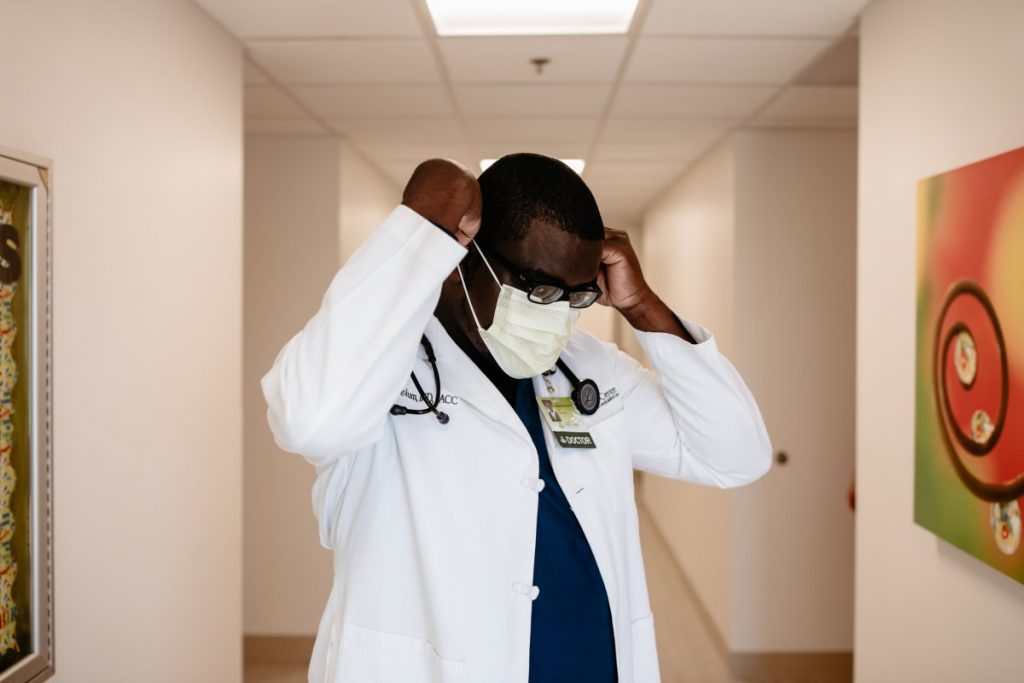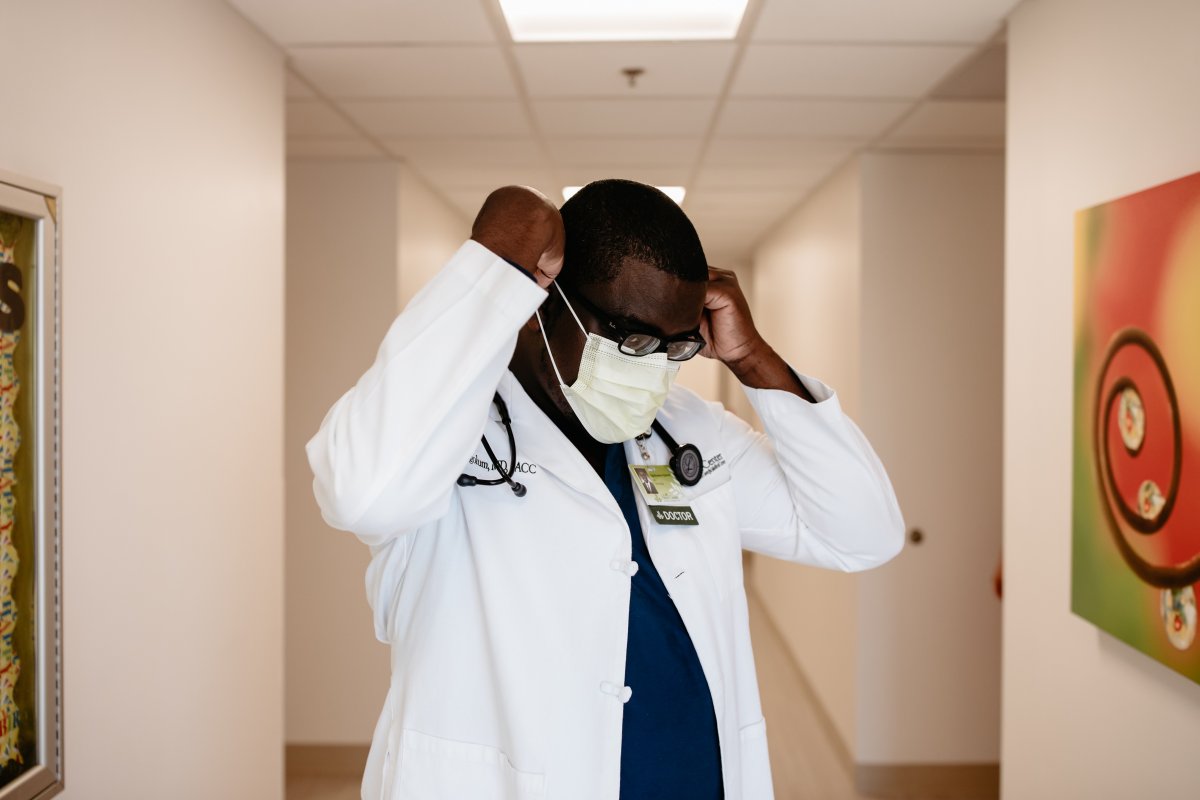
As COVID-19 continues to be a major part of our lives – impacting everything from shopping at grocery stores to shifting work and school schedules – a new facet of this pandemic has become front and center.
Face masks have become a big topic of conversation – and debate. Based on current findings shared by the Centers for Disease Control and the World Health Organization, it’s now recommended that everyone wear a face mask in public settings. While this shift in guidance will help to slow the spread of the virus, it’s also spurred on confusion, even resistance.
It isn’t just these recent changes and recommendations that have many individuals questioning the use of face masks. In fact, there are many common misconceptions that have given face masks a bad rap. But the truth is using face masks is extremely important, especially for higher-risk individuals, like those with high blood pressure or heart disease.
Ugochukwu O. Egolum, MD, medical director of the Advanced Heart Failure Program at Georgia Heart Institute, is here to help set the record straight.
Here are 6 common myths about face masks – and why individuals with heart disease need to take note:
1. “Cloth face masks don’t do anything.”
While cloth face masks are not a type of respirator, like N-95 masks, they are very effective at preventing large viral droplets from being spread. Each of us releases droplets anytime we speak, sneeze or cough, and a cloth mask acts as a physical barrier to stop droplets from becoming airborne.
2. “Face masks aren’t necessary for people without symptoms.”
As many as 80% of COVID-19 infections are mild, causing limited symptoms, or none at all. However, this doesn’t mean that those individuals aren’t contagious or able to spread the virus. Increasing evidence suggests that COVID-19 can be spread by individuals who have the virus, but don’t have any symptoms, this is known as asymptomatic transmission. It can also be spread by pre-symptomatic individuals, or those still developing signs of COVID-19.
3. “Face masks are only for high-risk individuals.”
For those with heart disease, or other underlying health conditions, COVID-19 can be especially scary – and dangerous. Because these individuals are at a higher risk of catching COVID-19, and their symptoms are more severe if they do, it’s highly recommended that they wear face masks. But it isn’t solely up to those individuals – we all play a role in protecting one another.
4. “Face masks only protect other people.”
There’s no denying that face masks are important to help protect others, but that isn’t their only benefit. In fact, growing evidence suggests that face masks provide significant benefits to the wearer, as well as those around him or her. One of the most notable benefits is that face masks help to prevent the wearer from breathing in large viral particles or droplets, reducing risk of infection.
Face masks also help to prevent you from touching your face, namely your nose and mouth, which is another way for COVID-19 to spread.
5. “Face masks aren’t necessary with social distancing.”
Even though wearing face masks are crucial to slowing the spread of COVID-19, they’re not the only way to prevent getting sick. In addition to wearing a face mask, you should continue to social distance whenever possible, as well as washing your hands and cleaning and disinfecting frequently-used surfaces, like doorknobs and countertops.
6. “It doesn’t matter how you wear your face mask.”
Unfortunately, face masks aren’t always the most comfortable. As a result, many individuals have gone to wearing their masks below their nose, resting on their chin or having them fit loosely against their face. Masks are only effective when worn correctly, which means it should be snug, yet comfortable. If you don’t like the mask you have, look for a different style that may be better for you.
Your Heart Health During COVID-19
We realize that your healthcare needs don’t stop – even in the midst of a pandemic. To ensure that every patient is to up-to-date with their cardiovascular care, Georgia Heart Institute is continuing to provide safe and convenient options, including video visits. If you come into any of our 13 locations for services, you’ll notice that we’re taking every possible precaution to ensure your safety and well-being. Request your appointment today, at nghs.com/heart.


